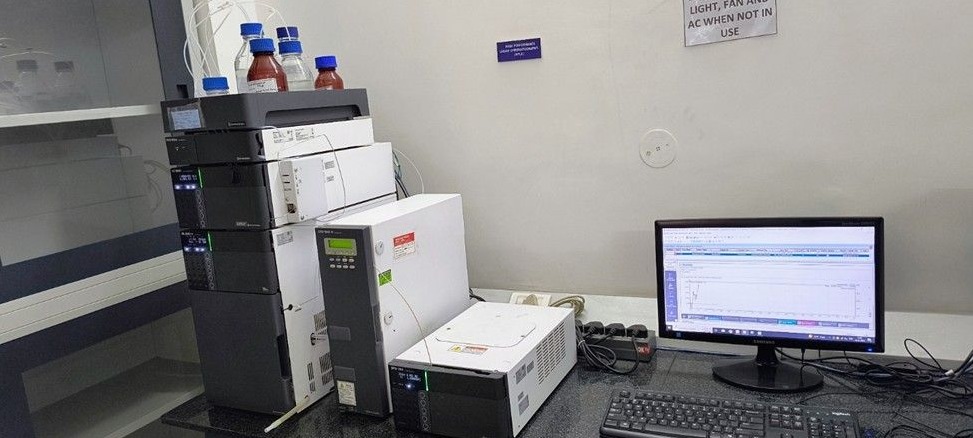



Research & development
Analytical Method Development, Verification & Validation
Definition
- Analytical Method Development– The systematic process of creating procedures to accurately measure the presence, concentration, or characteristics of an analyte in a specific sample.
- Method Verification– The process of confirming that a standard or published method performs as intended in a particular laboratory under defined conditions.
- Method Validation– The documented process of proving that an analytical method is suitable, reliable, and reproducible for its intended purpose.
Purpose
- Establish accurate, reliable, and scientifically sound methods for testing.
- Ensure that methods are fit for their intended use across different sample types.
- Meet regulatory and accreditation requirements (ISO/IEC 17025:2017, FSSAI, AOAC, SANCO/SANTE guidelines, etc.).
- Provide confidence in data generated for decision-making, product safety, and compliance.
Importance
- Reliability– Ensures results are consistent and reproducible.
- Accuracy & Precision– Guarantees trustworthy results for regulatory submissions and product quality.
- Regulatory Compliance– Mandatory for accreditation, licensing, and market approvals.
- Consumer Safety– Helps ensure agrochemicals, food, water, and other products are safe and effective.
- Risk Reduction– Minimizes false positives/negatives and reduces costly errors.
Key Importance
1.Analytical Method Development
- Selection of analyte(s) of interest.
- Choosing the appropriate technique (e.g., HPLC, GC, and LC-MS/MS).
- Optimizing conditions (sample preparation, extraction, chromatographic conditions, detection).
- Establishing Standard Operating Procedures (SOPs).
2.Method Verification
- Demonstrates that a standardized/published method works effectively in a specific lab.
- Ensures method performance under local conditions (instrument, analyst, reagents).
- Key parameters: accuracy, precision, detection limits, and reproducibility.
3.Method Validation
- Comprehensive evaluation of a method’s performance characteristics.
- Parameters include:
Specificity/Selectivity– ability to measure the analyte without interference.
• Linearity & Range – method provides accurate results across concentrations.
• Accuracy & Precision – closeness of results to true value and repeatability.
• Limit of Detection (LOD) & Limit of Quantification (LOQ).
• Robustness & Ruggedness – reliability under varied conditions.
• Recovery Studies – % analyte recovered from spiked samples.
Outcome
A validated method ensures that test results are:
- Accurate(close to true value)
- Reliable(reproducible across time and labs)
- Compliant(meet international guidelines)
- Defensible(can withstand regulatory or legal scrutiny)
Why Choose Ayurka Research Lab LLP?
- Experienced team of analytical scientists.
- State-of-the-art instruments (UV-VIS, HPLC, GC, LC-MS/MS, etc.).
- NABL accredited (ISO/IEC 17025:2017) laboratory.
- Expertise across agrochemicals, food, water, and environmental samples.
- Commitment to precision, compliance, and scientific excellence.
Submit Your Query for AMD,Verification & Validation.
Our expert team provides accurate and reliable solutions to ensure your methods are precise, validated, and compliant with regulatory standards. Share your requirements with us, and we’ll guide you with customized support.
